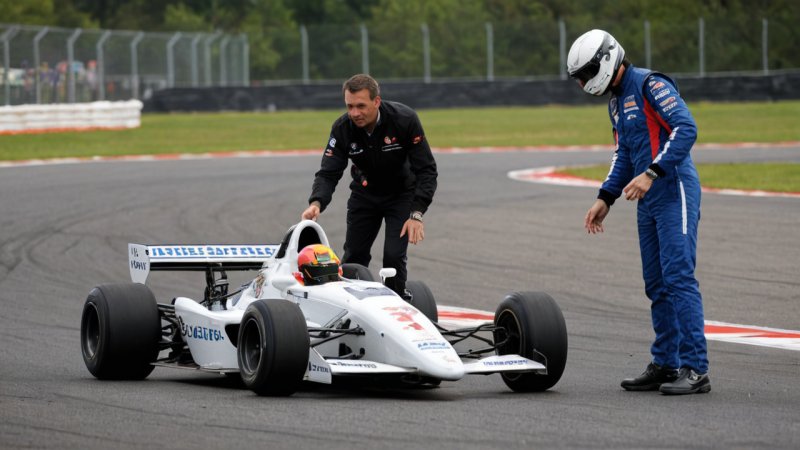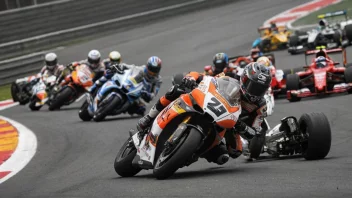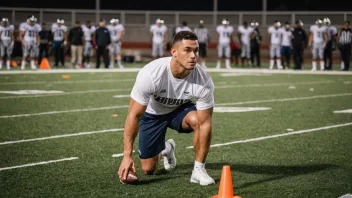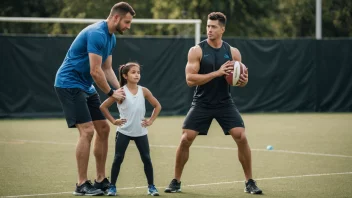Introduction
Motorsport is a complex and thrilling realm where the right coaching can make all the difference in an athlete's development. In this article, we will explore the pivotal role that effective coaching plays in the realm of motorsport, and provide a step-by-step guide on how to harness coaching techniques to improve performance while ensuring safety on the track.
Step 1: Understand the Importance of Coaching
Coaching in motorsport is not just about teaching drivers how to navigate tracks; it encompasses a broader scope that includes mental preparation, physical conditioning, and safety protocols. Understanding its importance is the first step toward effective development.
- Performance Enhancement: Coaches provide tailored strategies to improve lap times and racing techniques.
- Safety Awareness: Coaches emphasize the importance of safety gear and practices.
- Mental Resilience: Coaching helps athletes develop a strong mindset to handle pressure.
Step 2: Establish Clear Goals
Setting clear, achievable goals is essential. This helps both the coach and the athlete focus their efforts on specific outcomes.
- Short-term Goals: Focus on immediate improvements, such as refining cornering techniques.
- Long-term Goals: Plan for overall career progression and milestones, like competing in higher-tier events.
- Measurable Objectives: Use data from practice sessions to gauge performance improvements.
Step 3: Develop a Comprehensive Training Plan
A well-structured training plan is critical for success in motorsport. This plan should encompass physical, technical, and mental training.
- Physical Training: Focus on endurance, strength, and flexibility exercises.
- Technical Skills: Include simulations and track time to practice driving techniques.
- Mental Conditioning: Implement visualization and mindfulness practices to enhance focus.
Step 4: Embrace Technology
Incorporating technology into training can provide a competitive edge. Coaches should leverage advanced tools to analyze performance and develop strategies.
- Data Analytics: Use telemetry data to assess driving performance and identify areas for improvement.
- Simulation Software: Utilize racing simulators to practice different track conditions and scenarios.
- Video Analysis: Record practice sessions to review driving techniques and strategies.
Step 5: Foster Open Communication
Effective communication between coach and athlete is essential for growth. Both parties should feel comfortable discussing challenges and feedback.
- Regular Check-Ins: Schedule consistent meetings to discuss progress and concerns.
- Encourage Questions: Create an environment where athletes feel free to ask about techniques or strategies.
- Constructive Feedback: Provide actionable feedback that is specific and aimed at improvement.
Step 6: Prioritize Safety
Safety should always be at the forefront of any motorsport training program. Coaches must ensure that athletes understand and adhere to safety protocols.
- Use of Protective Gear: Ensure that athletes are equipped with proper helmets and protective clothing.
- Track Safety Protocols: Teach the importance of following track rules and regulations.
- Emergency Preparedness: Prepare athletes for potential accidents and ensure they know how to respond.
Step 7: Evaluate and Adapt
Continuous evaluation of training methods and athlete performance is vital for ongoing development. Coaches should be flexible and willing to adapt their strategies as needed.
- Monitor Progress: Regularly assess performance metrics and adjust training plans accordingly.
- Seek Feedback: Encourage athletes to provide input on training effectiveness and personal comfort levels.
- Stay Informed: Keep abreast of the latest advancements in motorsport coaching and technology.
Conclusion
In summary, coaching is a fundamental aspect of motorsport development that encompasses various elements, from goal setting to safety protocols. By understanding the importance of coaching, establishing clear goals, developing comprehensive training plans, embracing technology, fostering communication, prioritizing safety, and continuously evaluating performance, coaches can significantly enhance their athletes' performance and ensure their well-being on the track. Remember, the journey of a motorsport athlete is as much about safety as it is about speed!






